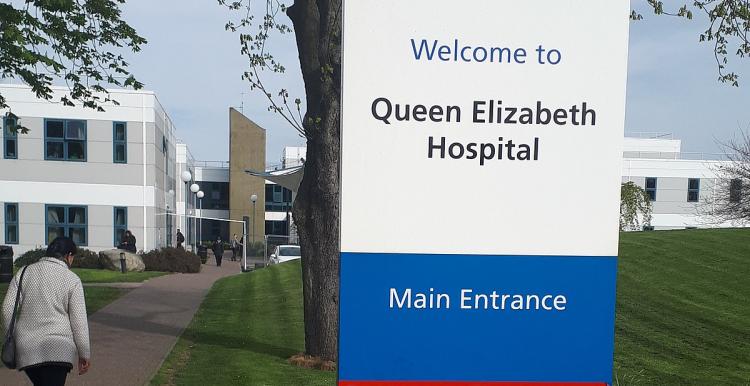Find out the average waiting time for your treatment in Greenwich

A new tool from NHS England means you can search for the average waiting time for your treatment.
How to use the tool
First of all, you will need to find out the provider of the service you have been referred into.
There are two NHS Trusts in the Royal Borough of Greenwich:
- Lewisham and Greenwich NHS Trust.
This means that some services are provided by Oxleas NHS Foundation Trust, and others by Lewisham and Greenwich NHS Trust.
For example, you're waiting for care at Queen Elizabeth Hospital, it will be provided by Lewisham and Greenwich NHS Trust. If you are waiting for a Mental Health referral or children's therapies, it will be provided by Oxleas NHS Trust.
You can find out who is providing the care by Googling the name of the service and looking at the NHS page for that service. If you are unsure, contact us:
Call: 020 8301 8340 between the hours of 09:00 – 17:00 Monday to Friday.
Text or WhatsApp: 07903 685 534
On our website: Feedback Centre
Post: Healthwatch Greenwich
Gunnery House
9-11 Gunnery Terrace
Royal Arsenal
London
SE18 6SW
Now you have found out which provider to search for, you can use the tool.
If you're referred for a physical or mental health condition, you have the legal right to start non-urgent consultant-led treatment, or be seen by a specialist for suspected cancer, within maximum waiting times.
This right only applies to services commissioned by the NHS in England and does not include public health services commissioned by local authorities, maternity services, or non-consultant-led mental health services.
Your waiting time starts from when the hospital or service receives your referral letter, or when you book your first appointment through the NHS e-Referral Service.
During this time period, you may:
- have tests, scans or other procedures to help ensure that your treatment is appropriate for your condition
- have medicine or therapy to manage your symptoms until you start treatment
- be referred to another consultant or department
Your waiting time ends if a clinician decides no treatment is necessary, if you decide you do not want to be treated, or when your treatment begins.
This could include:
- being admitted to hospital for an operation or treatment
- starting treatment that does not require you to stay in hospital, such as taking medicine
- beginning fitting for a medical device, such as leg braces
- agreeing to have your condition monitored for a time to see whether you need further treatment
- receiving advice from hospital staff about how to manage your condition
Tip: Did you know that in most cases you have the legal right to choose the hospital or service you'd like to go to, as well as the clinical team led by a consultant or named healthcare professional?
For more information, see guidance on NHS hospital services and accessing mental health service.
Maximum waiting times for non-urgent referrals
The maximum waiting time for non-urgent, consultant-led treatments is 18 weeks from the day your appointment is booked through the NHS e-Referral Service, or when the hospital or service receives your referral letter.
However, your right to an 18-week waiting time does not apply if:
- you choose to wait longer
- delaying the start of your treatment is in your best clinical interests, for example, when stopping smoking or losing weight first is likely to improve the outcome of your treatment
- it is clinically appropriate for your condition to be actively monitored in secondary care without clinical intervention or diagnostic procedures at that stage
- you fail to attend appointments that you had chosen from a set of reasonable options
- the treatment is no longer necessary
Maximum waiting times for urgent cancer referrals
The maximum waiting time for suspected cancer is 2 weeks from the day your appointment is booked through the NHS e-Referral Service, or when the hospital or service receives your referral letter.
Note: Referrals for investigations of breast symptoms, where cancer is not initially suspected, are not urgent referrals for suspected cancer and therefore fall outside the scope of this right.
You have the legal right to ask to be seen or treated by a different provider if you're likely to wait longer than the maximum waiting time specified for your treatment.
The hospital or integrated care board (ICB) will have to investigate and offer you a range of suitable alternative hospitals or clinics that would be able to see you sooner. If you're not happy with the organisation's response, you can complain by following the NHS complaints procedure.
NHS England has more detailed statistics on cancer waiting times
Compare waiting times
Waiting times may vary between hospitals, and you should consider this when choosing a hospital.
When you're referred for your first outpatient appointment, the NHS e-Referral Service lets you book the appointment at a hospital or clinic of your choice, on a date and at a time that suits you.
You can use the My Planned Care website to compare waiting times at different hospitals.
The length of time you wait will depend on your specific treatment and clinical needs, and you could be seen quicker or wait longer than the waiting time shown.
